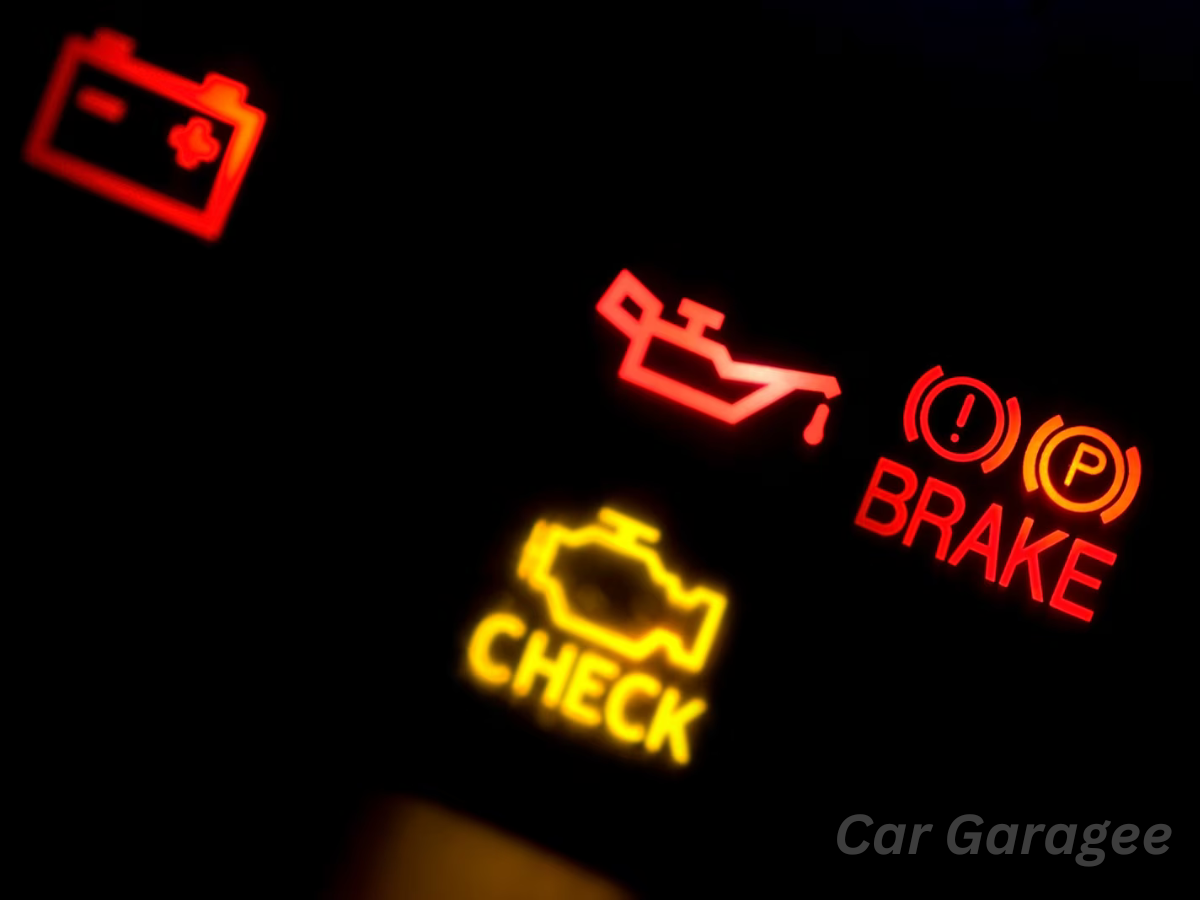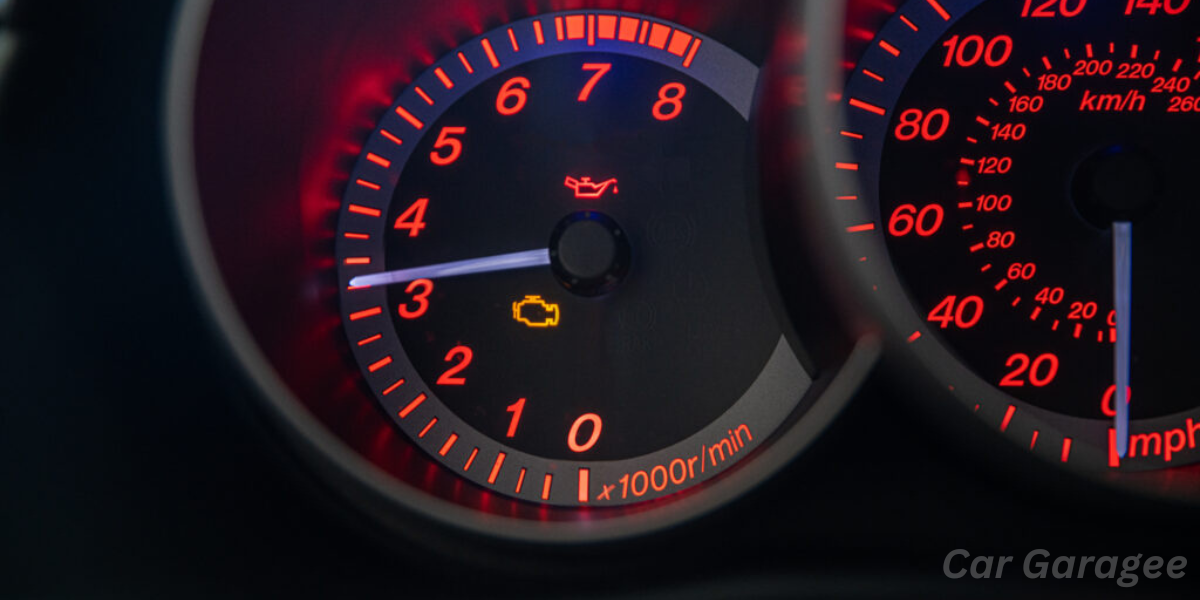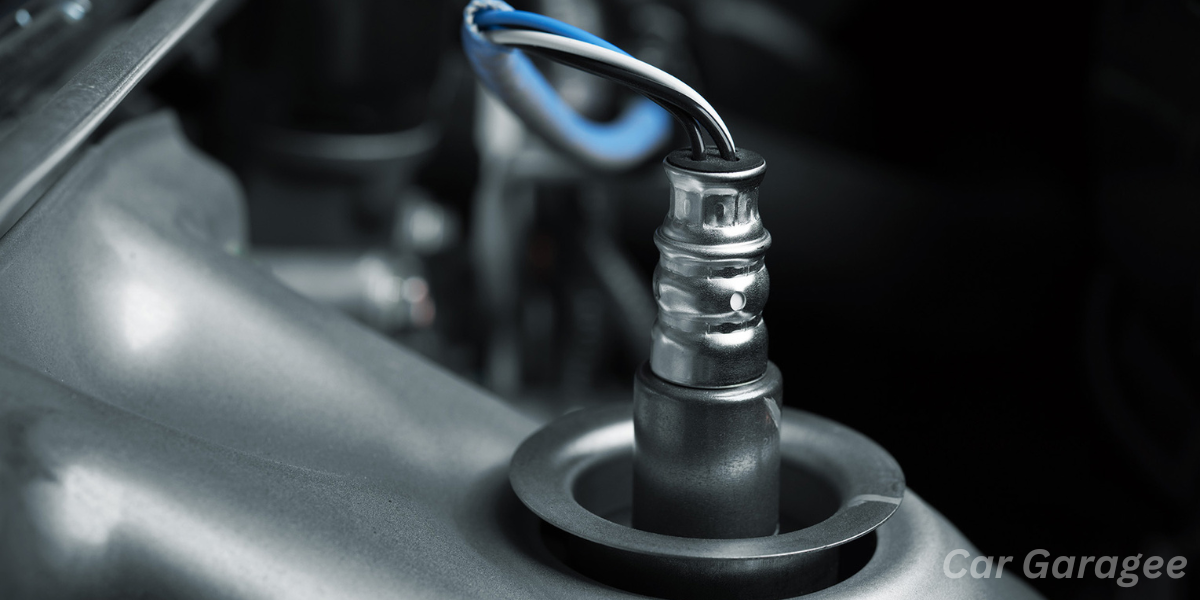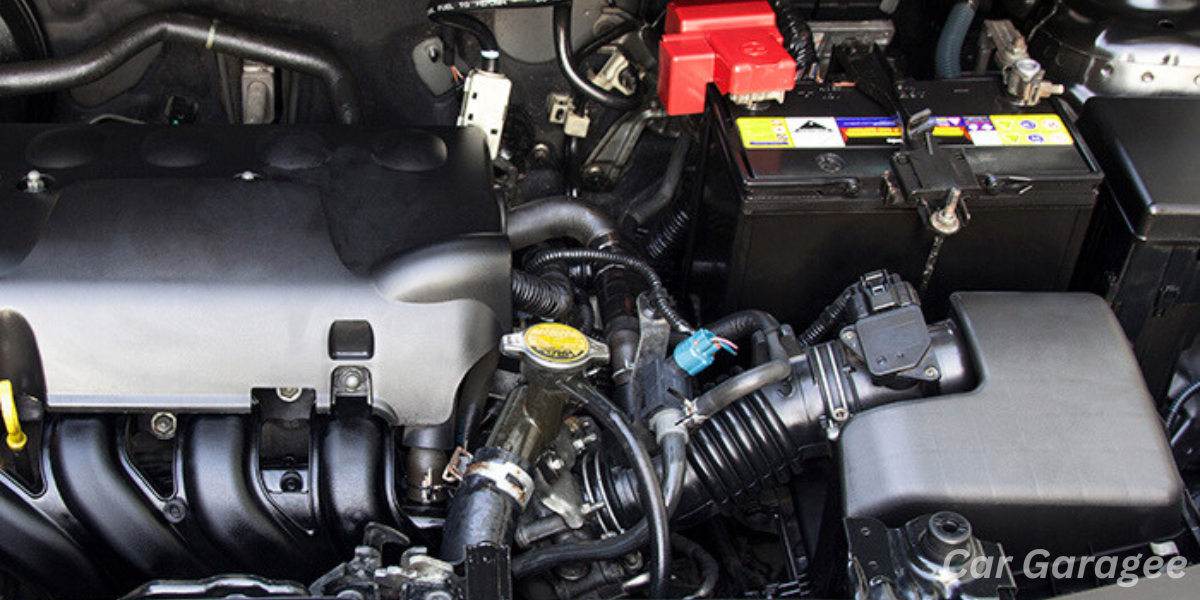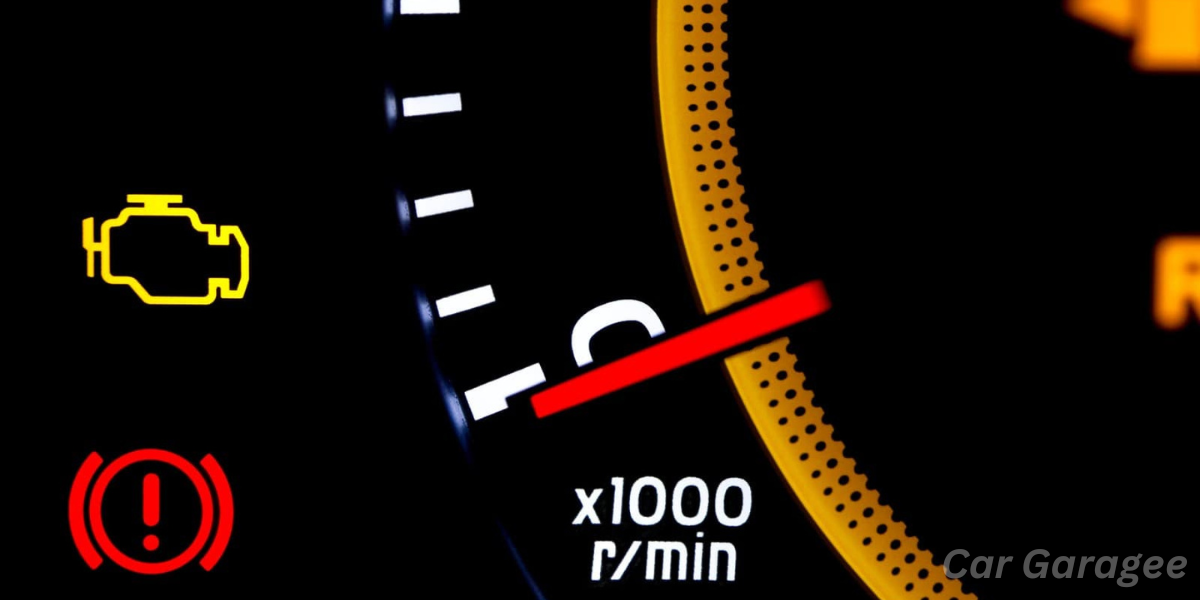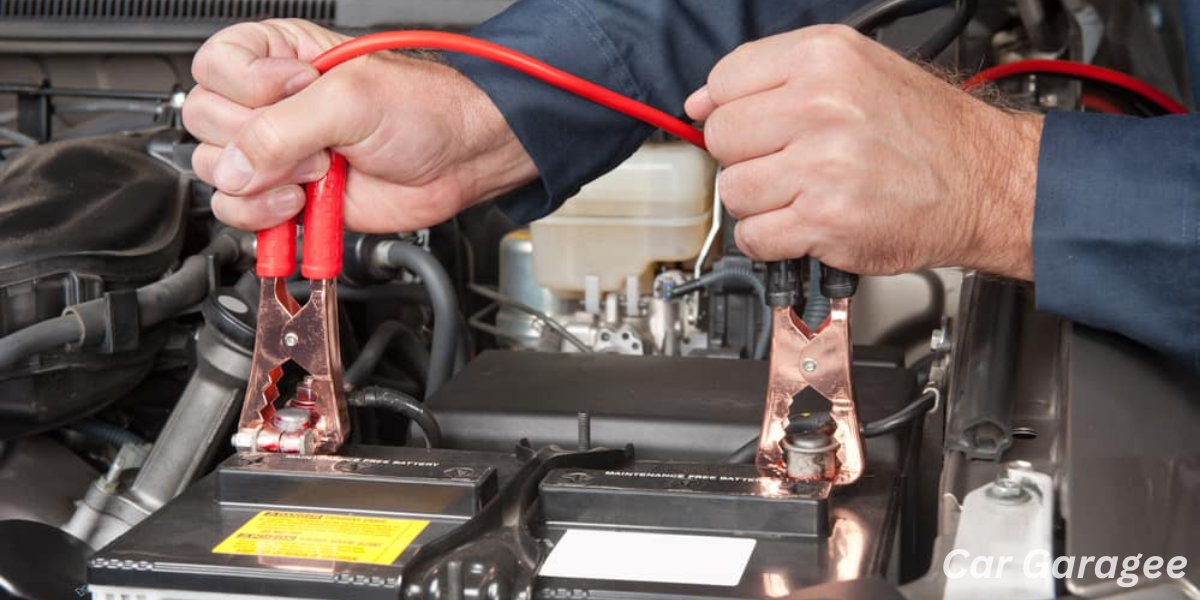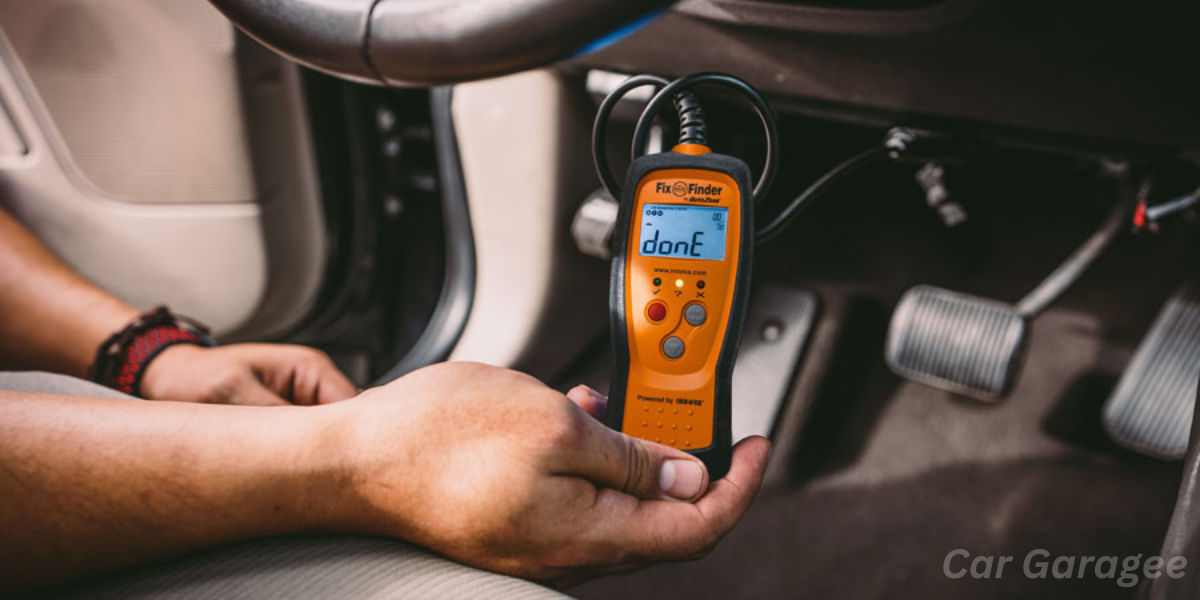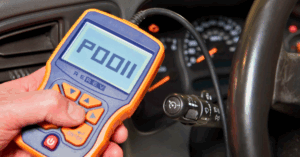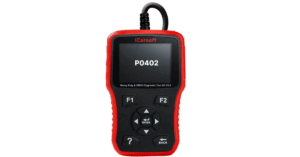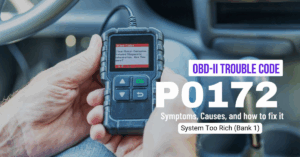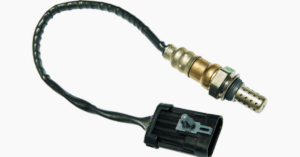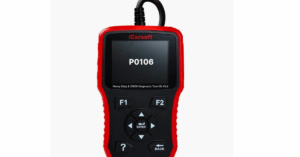When the check engine light suddenly appears on your dashboard, often as a yellow or orange silhouetted engine symbol or the words “CHECK ENGINE” in all-caps, it’s one of the scariest moments for most car owners. This indicator lamp (MIL), often known as a malfunction or warning light, means your car’s internal computer has identified a problem.
While some reasons for the light turning on may be as simple as a loose gas cap, it could also be signaling a more serious issue like a faulty catalytic converter or engine misfire. In the worst scenario, ignoring this light can lead to potentially costly and time consuming repairs.
The check engine light can indicate a range of issues, from basic malfunctions to extreme motor and exhaust problems. Flashing lights are often a sign of high temperatures in the engine that can overheat and cause damage or even a fire hazard. Whether it’s due to a loose wire, an ill fitting or worn solenoid, or issues in the emissions devices, this ominous light deserves immediate attention. For safety and to avoid further damage, it’s wise to visit a dealer or the nearest mechanic as soon as possible to determine the course of action and get back on the road safely.
What Does A Check Engine Light Mean?
The check engine light is a warning indicator on your vehicle dashboard that alerts the driver of a potential problem in the engine or emission system. It could signal anything from a simple fix like tightening the gas cap to more serious issues like worn spark plugs or a faulty oil valve.
When this amber or red light illuminates on the instrument panel, it’s best to inspect the problem and consider a visit to a mechanic if necessary. This general warning sign serves as a reminder that something is amiss in one of the essential systems, and it’s important to resolve it promptly to maintain safety on the road.
The check engine light (also called CEL or Malfunction Indicator Lamp MIL) is part of the computerized engine management system or Engine Control Unit (ECU) that monitors and detects irregularities. This communication from your car often requires a diagnostic scan using a code reader to retrieve trouble codes, which can help pinpoint the exact issue.
The light can appear in two stages: a steady light generally means a minor repairable fault, while a flashing light signals a severe fault and is an emergency. In cases of flashing lights, driving could be unsafe, and immediate mechanical attention is strongly recommended to prevent future damage.
Solid vs. Flashing Check Engine Light
When your check engine light turns solid or starts flashing, it’s sending a critical signal about your vehicle’s health. A solid check engine light often points to a minor issue that doesn’t demand immediate attention but still needs a mechanic to check on it in the near future.
However, a flashing check engine light is a more serious warning of a potentially catastrophic problem that can cause further damage if left untreated. This might indicate an ignition malfunction or an engine misfire — issues that, if ignored, could turn into complex repairs.
Not addressing these issues promptly can also pose an immediate threat to both engine systems and driver safety. It’s essential to schedule an appointment and get the culprit checked as soon as possible; a serious problem left unhandled might mean expensive repairs down the line.
Most common reasons why the check engine light comes on
1. Loose or Faulty Fuel Cap
A Check Engine Light might turn on simply because of a loose or faulty gas cap, which plays a big role in keeping the evaporative emissions system sealed. This small plastic part is key to stopping gasoline vapors from escaping the gas tank, which helps maintain the correct pressure and reduces unintended emissions. When the cap isn’t tightened properly or has lost its sealing pieces, the emission control system detects this as a problem and triggers a diagnostic system alert.
Often, just checking if the cap is tightened can help; otherwise, it may need replacing at most auto parts stores for about $15. A faulty cap can impact the fuel delivery system by allowing air leaks into the recirculation lines and fittings, causing gasoline fumes to evaporate from the surrounding area and wasting gas. Over time, codes may start grouping, indicating either a small or large leak in valves, lines, or other connectors in the EVAP system, which can be a costly repair if not fixed early.
2. Oxygen Sensor Issues
The oxygen sensor measures the unburned oxygen in your vehicle’s exhaust system, helping the engine control the air fuel mixture for the combustion process. Over time, especially after 80,000 miles or under 800degree exhaust temps, the sensor may fail and trigger a check engine light. This faulty sensor can impact fuel economy, causing the car to burn more fuel and get fewer miles per gallon.
If left unresolved, it may lead to costly catalytic converter repairs or damage to spark plugs. Replacing a bad O2 sensor early—though it can cost around $175 including labor—can prevent reduced performance and keep harmful pollutants like carbon monoxide in check. Ignoring this issue might even lead to failing an emissions test or a PO420 engine code, which could affect overall fuel efficiency.
3. Catalytic Converter
The catalytic converter is an important component in the vehicle’s emissions system that converts harmful pollutants like carbon monoxide and hydrocarbons into safer substances such as water vapor and carbon dioxide. When there’s an issue with this simple part, it often triggers the check engine light and can cause reduced performance and fuel efficiency.
A failed converter may produce unusual sounds, discolored smoke from the exhaust, or even trouble codes related to catalyst efficiency. While it’s costly to replace, around $200-$600 depending on your car’s make and model, regular maintenance like oil changes helps keep it in working order.
Driving short city distances without letting the converter fully heat up can also lead to clogs, which makes this part prone to failure in city only driving. If left unresolved, a clogged catalytic converter can cause engine failure and fail an emissions test due to harmful emissions escaping the tailpipe.
4. Mass Airflow Sensor
The mass airflow sensor (MAF) is a sensitive component that measures the air flowing into the engine to ensure the fuel injection system can supply the right fuel amount. When damaged or contaminated by oil, dirt, or water vapor, it can lead to reduced performance, rough idle, and even acceleration problems.
This sensor’s failure, often due to intake ducting leaks or rips, can reduce fuel efficiency and trigger the check engine light. A problematic MAF usually means reduced gas mileage or starting trouble, especially in a late model car. Regular cleaning with sensor cleaner might prevent issues, but if it fails, replacing it can cost $120-$150. Ignoring this can lead to rich or lean conditions and potential further failures in the engine management system.
5. Dead battery
A dead battery can easily trigger the check engine light or the battery light on the front panel, hinting at issues with your car’s electrical system. In today’s vehicles, longer lasting, maintenance free batteries are common, but even these eventually lose power, causing starting difficulties and electrical malfunctions.
Replacing a car battery can cost around $100, depending on the type of car and battery quality. If you’re changing it on your own, be cautious of plastic covers and carefully disconnect the positive and negative terminals to avoid losing stereo system codes or other settings. For late model cars, it’s sometimes easier to get help from a local dealer to ensure proper performance and electrical support.
6. Spark plug/ignition coil issues
A worn spark plug or malfunctioning ignition coil can cause the check engine light to come on, as these parts help ignite the fuel air mixture in your car’s cylinders. In classic cars with a single coil, this is simpler, but modern vehicles often use a coil per cylinder, such as a V8 with eight coils or even a Bugatti Chiron with 16 coils.
When ignition coils or spark plugs get worn or fouled, they can cause engine misfires, hesitation during acceleration, or even make the car shut off unexpectedly. Diesel engines don’t have spark plugs or ignition coils, so they avoid these issues. If replacement is needed, a quality spark plug is usually around $10$20, while a coil is in the $50 range, and changing spark plugs is generally an easier fix.
7. Bad spark plug wires
When a bad spark plug wire causes issues, it can lead to a check engine light as the electricity may not flow properly from the coil to the spark plug to ignite the fuel air mixture in the cylinders. Some older models like Mercedes Benz even have two spark plugs per cylinder and require two wires per cylinder, while newer cars typically use a single wire setup.
Damaged wires can result in rough idle, poor engine performance, and lower gas mileage. A set of plug wires costs around $50, and swapping them is usually quick, taking only a few minutes and requiring no special tools or extra knowledge.
8. Exhaust gas recirculation valve failure
A failing exhaust gas recirculation (EGR) valve can be a common reason for the check engine light to come on. The EGR system sends hot exhaust gases back into the combustion chambers to improve car engine efficiency and reduce nitrogen oxide emissions.
Over time, the EGR can become clogged, affecting the fuel burn and causing performance issues. For those mechanically inclined, removing, cleaning, and reinstalling the valve might resolve the issue temporarily, but a replacement with an OEM quality unit can cost around $125 and is often a better long term fix.
9. Vacuum leak
A vacuum leak in the misfiring vacuum system is a common reason for the check engine light to come on. This system supports essential car functions like the brake booster and helps with lower emissions by preventing gasoline fumes from escaping.
Over time, vacuum hoses can dry out or crack due to intense heat or extreme cold, causing issues like idle surge or unexpectedly high RPM levels. Loose connections or cracked fittings in vacuum lines are usually the culprit, but tracing the source can be timeconsuming and expensive. Replacing worn hoses often costs just a few bucks and can solve the issue before it worsens.
What to Do When Your Check Engine Light Comes On
When that check engine light begins to blink, it’s normal to feel concerned about your car driving smoothly. However, there are a few simple solutions you can try before rushing to a mechanic. Start by understanding the common reasons behind this warning indicator, as some can be easily fixed at home.
1. Check the Gas Cap First
A loose gas cap is one of the most frequent reasons for a check engine light to turn on. Confirm that the gas cap is securely screwed and in good condition. If it’s damaged, replacing it might prevent the light from flashing again. Tightening the gas cap properly is a quick fix and can save you time and unnecessary stress.
2. Evaluate Fuel Quality and Octane Levels
Using bad gas or the incorrect octane level can lead to engine problems. Cars that run on premium gas require an octane grade of 9194, whereas regular gas vehicles operate well with an octane level of 87. Lowquality fuel might even produce unpleasant odors and cause poor performance. If you suspect this, you might need to drain the gas tank and refill with quality fuel to get your car running smoothly again.
3. Get a Diagnostic Code with an OBDII Scanner
If basic checks don’t resolve the issue, it’s time to gather more information from the car’s internal computer. Vehicles after 1996 come equipped with an On Board Diagnostic system (OBD). An OBDII scanner connects to the OBD II port located near the driver’s footwell, under the dash, or even in the center console or compartment near the hood release.
Plugging in the scanner will show error codes on the screen, allowing you to pinpoint the exact issue. Common codes like P1301 can be quickly looked up on Google or in repair manuals to learn about simple fixes and their underlying cause.
4. Interpret the Diagnostic Test Results
Reading the diagnostic test may reveal an issue with the emission system or engine components. If you’re familiar with diagnostic tools, you might recognize some common codes related to emissions, the exhaust system, or other engine problems.
Understanding these codes, such as P1301 or others, gives a full story of what’s going on under the hood. It’s helpful to write down the list of codes you see, which can guide a mechanic or auto parts store employee if further help is needed.
5. Investigate for Abnormal Issues Under the Hood
Visually check the engine bay for anything out of the ordinary. Look for cracked vacuum hoses, loose wires, or any abnormal issues that might affect the vehicle system.
This step can help you spot a serious problem early. Engine overheating or lost power could indicate deeper issues needing a professional grade code scanner or tools that only professionals use.
6. Consider Professional Help for Complex Problems
If you’re unsure about the best course of action after running through self-diagnosis methods, consulting a mechanic might be wise. For complex issues, an AAA-approved facility or locator can connect you with a nearby mechanic who has the right expertise.
Mechanics at body shops can go deeper into exhaust system or emission control systems issues, helping you get back on the road confidently.
7. Manually Reset the Light After Resolving Issues
If you’ve addressed the issue, it’s possible to manually reset the check engine light using your OBDII scanner. Doing this allows the vehicle system to reset and monitor the engine components accurately.
Keep in mind that resetting without fixing could hide abnormal issues, so only proceed if you’re confident the problem is resolved.
Will the check engine light tell me when I should fix my car?
A check engine light is a valuable reminder for car maintenance but doesn’t always give a clear idea of what’s wrong. Sometimes, it’s precise with a direct code from the ECU showing what needs fixing, but other times it feels vague, making it hard to know if the damage has already happened or can wait.
Regular tuneups and routine maintenance—like checking the water pump, ball joints, A/C, or coolant—help prevent surprise breakdowns. If new sounds or smells pop up, it’s wise to schedule a checkup with a skilled mechanic before the orange engine light signals urgent issues.
Tackling basic needs like changing oil, replacing brake pads, and doing preventative maintenance not only saves time and money in the long run but keeps the car responsive and reliable through each drive.
How to decipher the check engine light with a code reader
When the check engine light or service required light turns on in the gauge cluster, it might seem worrying, but a code reader can help you understand the issue without immediately needing a local mechanic. Many car owners find these code readers affordable and easy to use, letting even beginners handle small issues that don’t require an hour of labor.
To use it, plug the code reader into the car’s OBDII port near the driver’s footwell. The device will show a trouble code that you can look up on trusted websites like Engine Light Help or an app on your smartphone. This helps you avoid costly, unnecessary repairs and keeps you on the right road to simple car care.
Tips for Preventing Unnecessary Check Engine Light Activation
Keeping your car’s Check Engine Light off often comes down to a few simple practices. By following steps that prevent unnecessary activations, you’ll save time, money, and stress in the long run.
- Follow the recommended maintenance schedule with regular oil changes, air filter replacements, and spark plug checks.
- When refueling, always tighten the gas cap securely to prevent evaporation and limit fuel vapors.
- Use quality fuel from reputable gas stations to maintain engine health and avoid unnecessary issues.
- Drive carefully and avoid aggressive driving to reduce strain on the engine and prevent premature wear.
- Learn to interpret engine codes for appropriate action if the Check Engine Light activates, saving time, money, and stress in the long run.
- These preventive steps reduce activations and help keep the alerting system focused on real potential issues rather than minor, avoidable triggers.
Why you shouldn’t ignore your check engine light
Ignoring your check engine light could lead to serious problems. In later car models, this feature is designed to give specific warnings through different colors or modes—for instance, a solid yellow or orange light may indicate a lower severity issue that still requires attention, while a red light signals immediate risk. If your light flashes on and off intermittently or glows red, it’s best to visit a mechanic as soon as possible.
Sometimes, it’s easy to confuse the check engine light with the maintenance required light, which often signals routine service needs like an oil change. However, the check engine light addresses more serious, often unexpected issues. Knowing your car’s make and model helps in understanding these indicators, so you can promptly diagnose and fix the problem. Booking an appointment when this light appears can prevent bigger repairs down the line, even if the issue seems unrelated to routine maintenance.
Consequences of Ignoring the Check Engine Light
Ignoring your Check Engine Light can be an unwise choice with serious consequences. It can trigger decreased fuel efficiency and lead to increased emissions from a poorly performing engine. What starts as a minor issue may quickly escalate into a major problem if left unaddressed, adding high costs for repairs.
Additionally, certain safety related issues like a faulty airbag system or braking system warnings could compromise safety. Over time, unaddressed problems can cause long term damage to the engine or transmission, affecting vehicle reliability and even car insurance rates. The best option is to visit a mechanic to get issues resolved promptly, avoiding unexpected repairs and costly, time consuming issues.
DIY Troubleshooting vs. Professional Assistance
Sometimes, when the check engine light comes on, a simple DIY approach can resolve it, especially if it’s a minor issue like a loose gas cap. For these basic maintenance tasks, a quick check can be appropriate and might save a trip to the shop. However, for complex issues or when you’re unsure about the cause, it’s often best to seek professional help.
A qualified mechanic or technician has the tools and knowledge to ensure an accurate diagnosis and repair, especially for problems that seem beyond a basic fix. Attempting a big job without experience may lead to more complications, so it’s wise to assess carefully before deciding if it’s something you can tackle on your own.
How To Reset Your Check Engine Light (5 Simple DIY Methods)
FAQS
What is the most common cause of a flashing check engine light?
A flashing check engine light often points to a failed O2 sensor, a common cause that affects your engine’s performance. This critical part in the exhaust system is responsible for monitoring the amount of unburned oxygen exiting the engine through the exhaust.
When the sensor sends incorrect messages, it can disrupt the oxygen and fuel mix needed for smooth operation. This imbalance may lead to poor performance, so it’s essential to address the issue promptly to allow the engine to adjust properly.
Can I drive my car with the check engine light flashing?
If your check engine light is flashing, it often means a serious problem like engine misfires or an overheating engine that could cause irreversible damage. In this case, it’s best to stop driving right away, turn off the car, and call for assistance.
Ignoring a flashing light can worsen the issue, so handling it quickly helps protect your engine and avoid costly repairs.
Which is worse, flashing or solid check engine light?
A flashing check engine light is worse than a solid check engine light. The solid light suggests a minor issue like a loose gas cap that needs checking soon, while the flashing light warns of a serious problem that requires immediate attention.
Can low oil cause flashing engine light?
Low oil doesn’t usually cause a flashing MIL (Malfunction Indicator Light), but it can lead to problems that might trigger it indirectly. Low oil can impact engine performance by affecting the VVT (Variable Valve Timing) system, where the valve position and cylinder position might not get synched.
This can lead to a severe misfire, which could cause the light to flash, signaling that immediate attention is needed.
How do you fix a check engine light?
- Check dashboard gauges and lights for signs like low oil pressure or overheating, as these may indicate a serious problem.
- Tighten the gas cap if it’s loose; this simple step can sometimes fix the check engine light.
- Reduce speed and reduce load on the engine to minimize strain if the light remains on.
- Use your car’s built-in diagnostic services (available in many newer models) to help identify the problem.
- Address any issue requiring immediate attention to avoid further damage.
Why is my engine light on but nothing seems wrong?
Sometimes, check engine lights come on even when your vehicle seems to be running fine. This could be due to minor problems like a loose gas cap—try to tighten the gas cap and see if the light turns off.
While it may not indicate serious problems, the light can still be a signal of underlying engine issues that need attention. If the light remains on, it’s best to visit a mechanic to check for any potential issues.

Mian Hashir is a passionate automotive enthusiast and the lead author at Car Garagee, a website dedicated to providing in-depth car reviews, maintenance tips, and the latest news in the automotive world. With years of experience in the industry, Hashir combines his technical knowledge with a love for cars to deliver insightful and engaging content. Whether you’re a car owner or a curious reader, Mian Hashir’s articles help readers make informed decisions, from choosing the right vehicle to understanding how to keep it in top condition.

